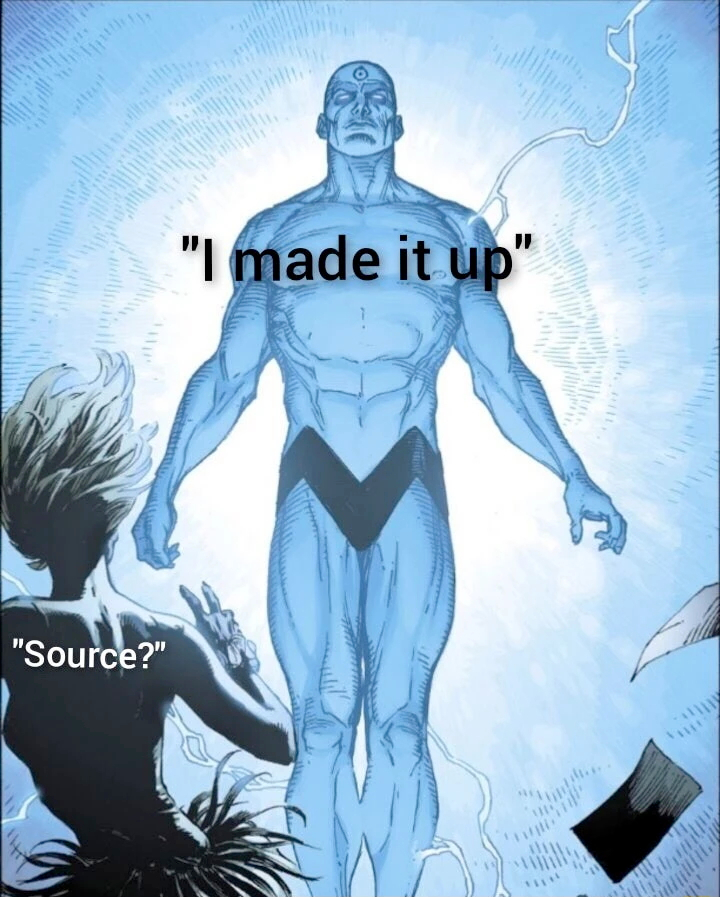
Sponsored By: Wave
This essay is brought to you by Wave, the AI+human coach. Level up your leadership, master time management, and boost your problem-solving skills, all through Wave's revolutionary daily routines.
Join our global community and kick-start your growth with a 14-day free trial of Wave today.
Last week, we embarked on the most terrifying change in our company’s history. We simultaneously announced that Lex, our AI writing app, was spinning out with $2.75M raised, and that one of our co-founders would be leaving to run it. It was a great (but scary) day. These moves showed what we were capable of, but still, it was all so different. My palms were sweaty for the entire month of August.
In my nightmare scenario, readers would leave en masse. I knew there were benefits in it for them (like free Lex access), but it felt like we were walking a tightrope. Within Every, my title is officially “numbers dude,” so I mostly sweated about the churn rate. I did the Napkin Math™ constantly. It was like I was being visited by a demonic calculator—a haunting done by Texas Instruments. Every time I turned in bed, I heard a numerical whisper in my ear, “If you churn X subscribers, cash reserves will run out in Y time frame, and you will be homeless in Z months.”
The consequences of failure would be dramatic. Our little operation is just three full-time employees: one of us is the primary breadwinner, and another just had a child. If this change blew up in our faces, there were real consequences.
Perhaps you can relate to the feeling of flirting with terror in your career. What if your deliverable fails, and you get fired? What if your new product is a dud? These thoughts can be emotional guillotines hanging over your day. You’re constantly distracted, glancing up, waiting for the blade to drop. It sucks. And it’s not just you. The whole company feels this way. A founder’s job as a leader often boils down to being a professional proselytizer, convincing the flock of employees that the company isn’t about to be executed.
So, after all the fretting, what happened after the announcement? Well, sorta everything and nothing. Lex crashed from all of the traffic. We got lots of kind notes, and our CEO Dan got some text messages (from his mom).We did not churn an unusual amount, we did not grow an unusual amount. Monthly recurring revenue crept up a smidge, but all in all it was a middle-of-the-bell-curve-type of week. ¯\_(ツ)_/¯
If no one cared enough to churn or subscribe, you could argue that our nothing-burger of a financial result means that our months of worry and prep worked. Or maybe (I hope it's at least partially this) that the editorial product is so good that it’s impervious to changes. There is some element of truth to both.
But, really, I think it means it was a risk worth taking. The internet only rewards outsized bets, and Lex was a good one to make.
This story is an embodiment of a timeless idea, one moms have been telling teenagers for time immemorial: “No one at school is paying attention to you, sweetie—they’re too busy worrying about themselves.”
What's different now versus when my mom told me that is how the internet inserts go-go-nitro-juice into this dynamic.
On the internet, actions of corporations and individuals are mixed together in the same algorithmically determined feed or on the same pixelated screen. It’s a cacophony of stories and screaming and noise noise noise. I’ve been arguing this point recently but I’ll say it again: we still don’t understand what the internet is doing to us. For something to break through, for a story to gain notice online, it requires extremes—those of quality or, more commonly, extreme violations of norms. For a tiny startup announcing a product spinout? No one cares.
The inverted question this poses is crucial for startups and technologists: if nothing matters and no one cares, then how do I build things that matter? How do I make people care about them?
Imagine having a coach that blends AI efficiency with human intuition. This is Wave – a new approach to meeting your workplace goals, whether it is leadership development, mastering time management, or boosting your problem-solving skills.
Tired of stagnant, outdated professional development tools? Wave is the innovative technique used by leaders at prominent firms like Amazon, Stripe, Google, and Strapi. It redefines the path to professional growth with daily routines, making progress measurable and enjoyable.
Why follow in the footsteps of the ordinary when you can ride the wave? Dive in today and enjoy a complimentary 14-day free trial.
Quoting the greats
To break out, you have three options.
Make one customer thrilled
The one constant for tech companies is constraint. You have so little time and so little capital that it is impossible to build something that will make everyone happy (at first). The only option is to find one very narrow, very niche set of customers and make them deliriously happy. In a 1996 interview, Jeff Bezos said, “If you make customers unhappy on the Internet, they can each tell 6,000 friends with one message to a newsgroup. If you make them really happy, they can tell 6,000 people about that. You want every customer to become an evangelist for you.”
Your product has to be something that people rant and rave about. Since you can’t afford to buy attention with paid marketing, technologists have to solve a problem so spectacularly that users will market it for them.
For startups that require several years of building until they have a working product, they have to make people thrilled with narrative alone. The story you tell, the emotions that it incites in people, will have to be so strong that people will want to jump in. Love him or hate him, Elon Musk is a master at this. He has an ability to arouse euphoric levels of excitement in a specific type of customer (weird nerds) and channels that adoration into companies worth hundreds of billions of dollars.
Just keep shipping
On May 26, 2010 Apple surpassed Microsoft’s valuation. It was a momentous achievement for a company that wasn’t that had recently flirted with bankruptcy. To celebrate, Jobs sent a brief email to the company. In his typical fashion, it was short on praise and ended with a call to keep pushing: “Walt Disney used to say to his team: ‘We’re only as good as our next picture.’ Well, we’re only as good as our next amazing new product. Back to work…”
One way to build a startup is to never stop shipping incremental product improvements. With the internet being ruled by power laws, it is impossible to know which of your features will be a hit. Your best bet is to set an audacious goal and build incremental improvements toward that goal as quickly as possible, until you hit the inflection point of adoration and the internet takes notice. At Every, that means never being satisfied with the writing we publish. Every week the essays need to be at least a smidge better.
Marc Andreessen’s best essay described an early version of this organic internet pull. He couched it within the framework of product-market-fit: “And you can always feel product/market fit when it’s happening. The customers are buying the product just as fast as you can make it—or usage is growing just as fast as you can add more servers. Money from customers is piling up in your company checking account. You’re hiring sales and customer support staff as fast as you can. Reporters are calling because they’ve heard about your hot new thing and they want to talk to you about it. You start getting entrepreneur of the year awards from Harvard Business School. Investment bankers are staking out your house.”
In 2007, when he wrote that essay, he frequently talked about how signs of PMF came from traditional media and institutional recognition. The decline in those institutions over the past 16 years is almost entirely attributable to the internet. Now, the only praise you need—or, arguably, should want—is from online. Adoration from niches is more powerful than general mass positivity.
To earn that devotion, you need to reach the magic point at which your product crosses the chasm and finally clicks with users. The challenge is that you can never really tell how close or how far away that point is. Founders will quit right before they achieve organic internet pull, or, conversely, they’ll chip away at the wrong idea for far too long. The only way to shortcut this process is to ship quality improvements as quickly as humanly possible. Shipping speed is all that matters.
Category creation
One of the best ways to be taken seriously online is to be the inventor of something new. On the company level, this is typically called category creation. I’ve written in the past how SurveyMonkey lost because of its inability to capture the "experience management" category, but I love this story of how enterprise SaaS startup Yammer ($1.3B exit to Microsoft) won its market. The former Yammer CMO explained:
“Jive was the enterprise darling and told prospects Yammer wasn’t secure (‘that viral, free offering will never be trusted by enterprises’). They used this line to deposition us in every sales conversation we had. So I took our perceived greatest weakness and turned it into our greatest strength. We started to position them as software only your grandparents would use because Jive required that IT provision it. We also pushed this point by launching a microsite that illustrated our innovation. We named our product development approach the ‘data-driven development methodology.’ This approach drove our weekly releases and often made IT nervous, and I made the whole term up.” [Emphasis added]
The dirty secret is that category creation is an embodiment of this meme. “Where did this startup’s category come from?”
“I made it up.”
Calling yourself something new is a good way to get noticed and make the internet take you more seriously. When Every got started, we were a “writer’s collective,” which drove a lot of interest in the early days.
The common mistake is attempting category creation too early. If no one knows you, and you choose an asinine, incomprehensible description, you’re dead in the water. The key is to make something new, yet familiar; understandable, but intriguing. The easiest way to do so is to say that you’re the X for Y—the Uber for dogs, or whatever. Notion, one of the few breakout SaaS companies of the last few years, started in just this way: “It’s as if you had Airtable, Google Docs, Asana, etc. combined into one. It took time for the term “digital workspace” to catch on and become mainstream. It had to be used repeatedly alongside analogies that people could actually picture first.”
The necessity of building
The challenge for startups today isn't just to exist, but to be remarkable in the sea of the internet. (There are also troubling implications of this idea for an individual's behavior, but that’s a topic for another day.) The classics of the startup advice genre still hold true—focus on a niche, ship quickly, build something new—but the internet makes these truisms more important than ever.
This is a deeply empowering idea. If no one cares, it's incredibly important to take risks like the Lex spinout. It might not work, and theoretically, all of our beloved readers could depart, but taking a bet on the future of media companies is the only way we can stand out. By understanding that people care less about you and your company than you think, it gives you the space to build things that people are truly passionate about.
The internet is loud. It is chaotic. But it is freedom. Freedom to build and be what you want to be.
The Only Subscription
You Need to
Stay at the
Edge of AI
The essential toolkit for those shaping the future
"This might be the best value you
can get from an AI subscription."
- Jay S.
Join 100,000+ leaders, builders, and innovators

Email address
Already have an account? Sign in
What is included in a subscription?
Daily insights from AI pioneers + early access to powerful AI tools







.08.31_AM.png)



Comments
Don't have an account? Sign up!
It is outstanding editorial. I recently cancelled a load of my media subscriptions because money is tight but no was I was cancelling this one.
@jtowers349 thank you so much!! that means a lot—we deeply value your subscription!
Thank you for writing about what it's like as a founder of your specific company, your specific dream, and your specific approach. You already have my requested advice on Lex. Today, I remind you to not forget what makes Every work. All sorts of people advise "write shorter" and not more than 500 words. But I don't pay for their stuff. I pay for Every, for longer articles which are well written and tightly wrapped around my higher standards for quality and meaningful work. Keep Lex in the same value proposition where it started. You don't need to please everyone--only the customers worthy of your time on earth and your innovation.
@[email protected] yes!
Great writing! I am trying to use Lex in Chrome on my Samsung Android phone. I am at the first step in the tutorial to define a draft of my topic. The text area does not allow input. Is Lex only functional a PC? I also have tablet. Keep up the good work :)